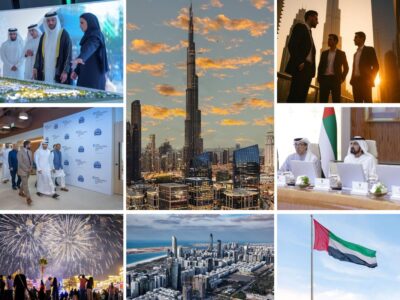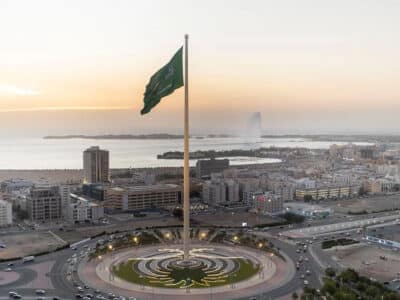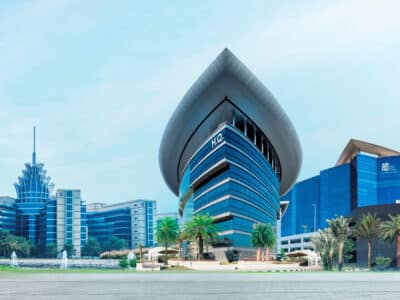The Gulf Cooperation Council (GCC) has a major opportunity to position itself as a global hub for climate-aligned foreign direct investment (FDI), according to a new analysis by Strategy& Middle East.
The report reveals that while more than $1tn in global green FDI flowed between 2020 and 2024, Saudi Arabia, the UAE, and Oman attracted only $24bn.
By contrast, these countries invested $132bn in green projects abroad during the same period.
GCC climate investment opportunity
Between 2020 and 2024, the three nations accounted for 29 outbound and 10 inbound green FDI deals, representing most of the GCC’s large-scale activity.
However, this equated to just 2 per cent of global green FDI flows. Despite this, the region holds powerful competitive advantages, including the world’s lowest solar production costs—with six of the ten cheapest projects globally based in the GCC.
Dr. Yahya Anouti, Partner with Strategy& and leader of the firm’s Energy, Resources and Sustainability practice in the Middle East, said: “Climate concerns and government incentives have created an investment surge that is reshaping the global economy.
“The GCC is uniquely positioned to benefit, possessing bold net-zero ambitions and some of the world’s cheapest clean energy sources. Yet, more can be done to fully capture the momentum of global green investment.
“What’s needed now is a stronger policy shift to transform the region into a thriving hub for domestic investment.”
Globally, 53 per cent of all large-scale FDI went into green sectors between 2020 and 2024, with hydrogen and ammonia, renewable power, and batteries accounting for 80 per cent of the total.
The peak came in 2022–23, though green FDI remained strong in 2024 at $158bn, triple the level of 2020.
Saudi Arabia received the largest share of inbound green FDI in the GCC at $12.6bn, followed by Oman at $8.9bn—including major Indian-backed projects in green ammonia and steel.
The UAE attracted deals in hydrogen and electric vehicles, primarily from China, India, and the United States.

Devesh Katiyar, Partner at Strategy& Middle East, said: “The green transition is redefining how and where industries grow. As climate capital remains a fixture in global markets, the region must play a greater role in not only deploying capital but attracting it.
“This means embracing a range of tools to strengthen the business climate, from de-risking mechanisms and clearer regulations to incentives that actively shape capital flows.”
The report recommends four actions to unlock the GCC’s green FDI potential:
- Enact landmark climate-forward policies, similar to the US Inflation Reduction Act and EU Green Deal
- De-risk investments through long-term offtake agreements, green bonds, and dedicated clean-tech funds
- Accelerate green industrial development in hydrogen, low-carbon materials, and circular economy ventures
- Leverage outbound investments to build capabilities and co-investment opportunities at home
Momentum is already building. Saudi Arabia has issued a $1.7bn sovereign green bond, Oman has signed a landmark hydrogen offtake deal, and the UAE has introduced its Sustainable Finance Framework.
The analysis concludes that while shifting capital flows, tariffs, and geopolitical risk may alter trajectories, climate risks ensure that green investment will remain central to the global agenda.








